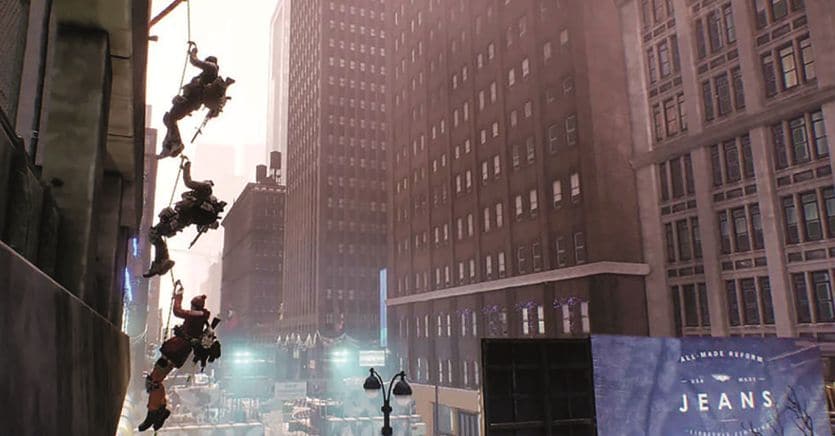Battlefield is a rather popular war multiplayer video game. But not everyone knows that you can’t desert in Battlefield. That if you run away from the battlefield, the algorithm itself eliminates the player. That the places that are not directly interested in the battle are practically empty. That the comrades cannot kill each other because the algorithm decides that the roles can only be those of those who kill the enemy or are killed by him. That of all the objects present only the flags cannot be destroyed. All these things, and others, he makes you discover “ How to Disappear ”, A short film set in the world of Battlefield and directed by Total Refusal alias Robin Klengel and Leonhard Müllner. Let’s talk about a kind of documentary machinima – technique to hack video games and creatively bend them to narrative or artistic uses – which reflects on pacifism within a war game by forcing it.
Thus showing two fundamental things: how virtual environments perpetuate some real logic. In fact, behind the fun there are patterns of thought and behavior. On the other hand, like these virtual spaces, they not only appropriate real ethical and cognitive elements, but are filled with meaning, they produce experiences, activities, sharing. That is, they are somehow real spaces. Spaces so real that the directors decide to fill them with an observation, not only participatory, but also ideological, political, activating a form of activism within the virtual world and producing a complex reflection on the reasons for pacifism.
Loading…
This is a practice that they also use in another work: “Operation Jane Walk“. It is first of all a performance that takes place within the videogame “Tom Clancy’s the Division” and then a film based on the performance. Once again, therefore, a forced entry, a hacking, of a virtual world. A world that is very familiar to many, given the success of this game too. And, once again, a war scenario. In fact, we have descended into a post-apocalyptic New York, but the soldiers who accompany us decide not to engage in shootings, but to let us take a tour of Manhattan, focusing on the quality of the game world. A war game thus turns into a virtual tour live and participated, also in this case, to trigger new reflections on the fundamental importance of these spaces in our daily life and on the possibility of bending them to different needs.
Thus the need for a new ethnography seems to emerge that also takes into account the virtual places that are multiplying in the meantime. Let’s think about social and immersive worlds with the virtual reality and the augmented reality. Therefore, the need arises to cross these places wearing the clothes of new ethnographers, like Marc Augé, observing spaces not studied with due attention until now. We could be on the verge of a paradigm shift that will lead precisely these spaces to become increasingly important. And this will therefore require a cognitive effort and for some scholars it will involve neuro-sensory modifications aimed at embracing an increased and amplified space.
Let’s talk about the so-called revolution spatial computing and Xr technologies (extended reality). Suffice it to say that Epic Game (those of “Fortnite” to be clear) has recently raised over a billion dollars from various investors to create Metaverse, the dream of a completely intermediary, multimedia, immersive, shared and interactive social platform, which seems to realize Jaron Lanier’s predictions about virtual reality and Myron Kruger’s about what he called “artificial reality”. Who remembers Second Life? We talk about something like this with ecommerce, rental, streaming and sales services, as well as instant messaging. How to deal with this paradigm shift? Meanwhile, observing these worlds, exposing their mechanisms, logics and experimenting with the possibilities of appropriating or abandoning them. Yes, because, even if “real”, these spaces have differences. Although increasingly sensitive (think of Mel Slater’s work on sensors in VR) they are “other”. Attention focuses on this “My Own Landscape”By Antoine Chapon, another“ documentary ”set in virtual worlds. Once again we are in a war space, the one created by a military developer of defense games. It is a growing phenomenon: simulation games that serve to recruit, train and heal soldiers. Virtual worlds in which war is made in safety or where peace and refreshment are sought after the violent experience. Cyril is a soldier who trained in one of these simulated worlds, who then went to the real war field and, once back, re-enters the game, but bringing a different look, showing the obvious signs of a psychic change. and cognitive.
